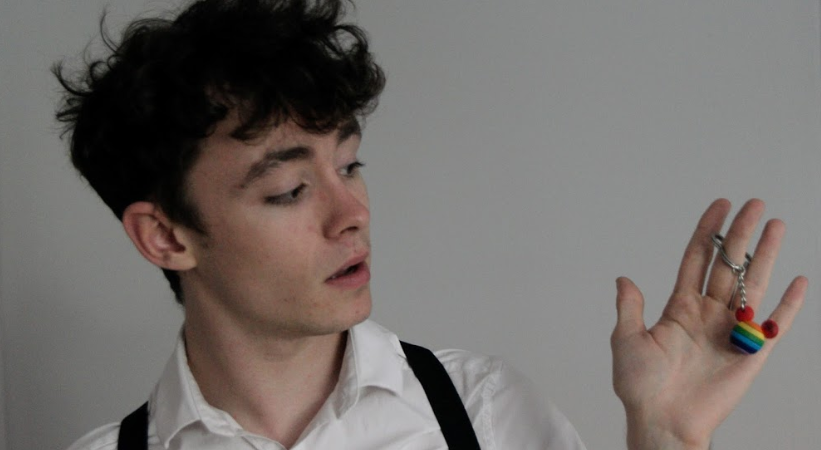Dean O’Reilly didn’t come out as queer until college, but starting in his mid-teens, he discovered the art of drag. Thanks to YouTube, he stumbled upon the colorful world of “RuPaul’s Drag Race” and got hooked. This drag competition reality show was his first time to see queer people truly celebrated for their authenticity, and he fell in love with RuPaul Charles and his vibrant drag empire.
O’Reilly, a 19-year-old currently attending college in Dublin, Ireland, came out to family and friends two years ago when he was starting school. Coming out was a relief, and he felt a sense of community as he got involved in his college’s LGBTQ society. But he was told it could be difficult to land a job as an out queer person.
Then, a friend from the LGBTQ society connected him with Enhancv, a resume improvement service. The business was working on a part of their site where they created mock celebrity resumes to show examples of top-notch resumes. They wanted someone to write a mock resume for RuPaul, and knowing O’Reilly’s affinity for Drag Race, they asked him to tackle it.
As expected, O’Reilly knocked it out of the park due to his intimate knowledge of the famous drag queen. Enhancv then hired him on to be a summer intern, where he’s been for two months. In a world where many LGBTQ people struggle to find a job that accepts them, O’Reilly says he was lucky enough to find a job as a direct result of his queerness and knowledge of queer issues.
This is O’Reilly’s story of coming out as queer, falling in love with RuPaul’s Drag Race, and landing his first job due to this passion.
Profiles in Pride: When did you realize you were queer, and what did coming out look like for you?
Dean O’Reilly: In the same way that a lot of queer and LGBTQ people have this experience — that we’ve always known there’s something different or off or special about ourselves — that was something I was quite aware of from a very young age, probably around 4 or 5 years old. It was when I began having intense social situations, like when I started schooling and started getting exposed to other people’s experiences and lives, that helped me put perspective or comparison to what my experience was.
In terms of identifying as queer or describing myself with a particular label, that’s something that didn’t come until quite later on. All the way through schooling, I wasn’t out at all. I’m sure there were people who had assumptions or ideas about it, but it wasn’t until I finished secondary school, the equivalent of high school, when I was 17. That’s when the coming out happened.
I describe my coming out process as more of a falling out of the closet rather than coming out of the closet; it just sort of happened. I finished school and I came across this particular person, this guy I was interested in. I wasn’t out to my friends and I wasn’t out to my family, but for some reason I just decided in that moment to pursue him and go on dates with that person. Eventually my friends found out what was happening and asked me about it, and that was pretty much it. That was my coming out to my friends.
With my family, I finished secondary school, and that summer I started dating this person. The following September, I started college. By the time I actually started college, I had finished dating that person, so I was this newfound queer person who was just recently out to friends, not out to family. Like a lot of other LGBT people, I went to the student LGBT society, since I thought it would be a nice safe space for me to explore what this part of my identity means and meet other people like me.
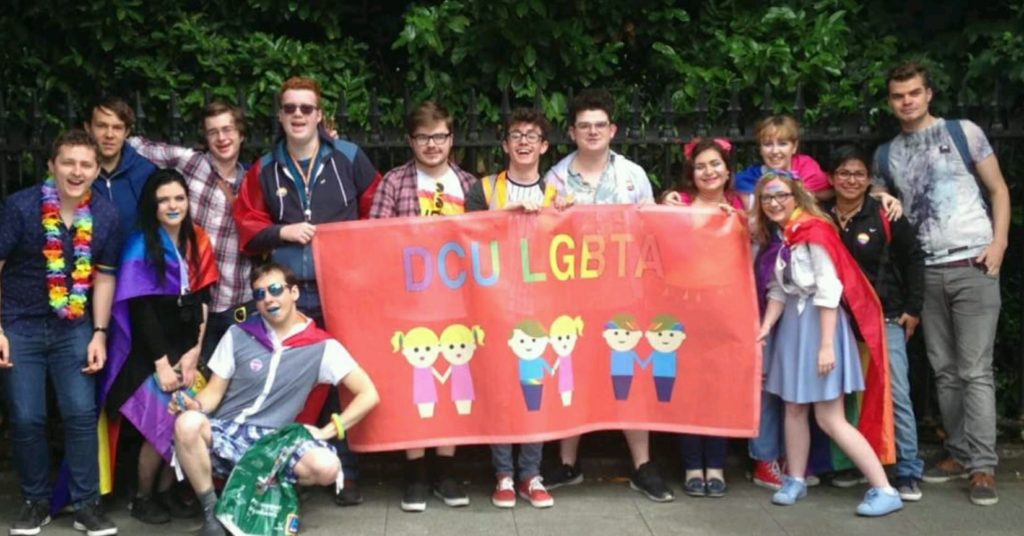
With that society, I ended up on the organizing committee as the first-year representative, and I got heavily involved. One of the events the society is involved in is called Pink Training, the largest LGBTI training that takes place in Europe. There’s a bunch of LGBT societies in Ireland that go to one university a weekend with workshops and social events and parties and stuff, so I was getting ready one night to go to this training. I told my parents I was going away on a student’s union trip and would be gone for the weekend.
My phone was resting on the kitchen table, and after finishing dating that first guy over the summer, I decided I’d get on Tinder and see what it’s like for other queer people. There was a notification on my phone that I’d matched with a guy. One of my parents saw this on my phone and asked me about it. That was how my coming out worked with my family! Then the next day I went away on that trip.
I know most queer people always think about how they’re going to come out or if they should come out or what happens if they come out. I never wanted to do that whole sitting down ‘I have something to tell you’ thing; I imagined myself just bringing a boyfriend home, but in retrospect, I’m really glad that’s not what I did. I wouldn’t really change much about what my coming out story was; if anything, I would have just done it sooner!
PIP: Were you worried about getting your first job as an out queer person?
DO: Yes, so I had never really had a job in the professional sense, because I started college when I was 17 and I didn’t work when I was in secondary school. My first year of college, I became so heavily involved in the LGBT society there that I became a chair last year and will continue serving in that position until April of next year. With that comes a lot of opportunity and duties and responsibilities.
One thing I was taught about is I’m doing all this great work in the LGBT scene, like putting on fundraisers, working with my committee, putting on workshops for people, and all different things. But is that going to be a help or a hindrance to me if I put that on my resume? If I say I did all this LGBT work, is that going to be looked favorably upon or is it going to out me and then cause me not to get that job?
That was a struggle I had all the time. On top of that, I had spent such a long time not being out, like I mentioned, I didn’t come out until starting college. I’m going into my third year of college now, and being queer is such a large part of my identity now compared to what it was before I started coming out. So I was very worried that I’d have to be one of those people who’d have to go back into the closet to get a job. I was worried how those two words would collide and whether or not they’d be able to coincide or whether I’d have to just hide parts of myself so that I could make a living or get more experience in my field.
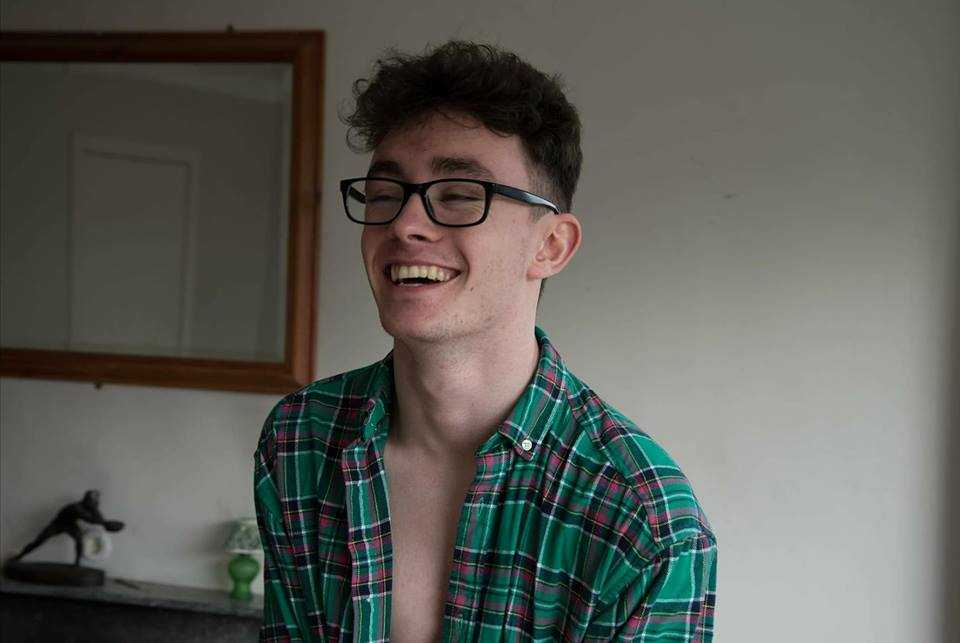
PIP: I know you love drag and RuPaul’s Drag Race; can you talk about why you love it so much?
DO: Drag in general was pretty much my opening to the queer community. As I mentioned, I wasn’t out before starting college, but I was watching drag and Drag Race before then. When I was probably around 15 or 16, I was on YouTube watching some of my favorite YouTubers, and I believe it was a Shane Dawson video. He had done a collab with Willam, one of the stars of RuPaul’s Drag Race season four. This video was just basically Willam putting Shane in drag.
I’d never seen drag other than the sort of drag in a pub or the act that everyone laughs at but doesn’t respect; that’s really all I knew of drag. So seeing this drag artist just being so personality-driven and celebrated, I was really intrigued by who they were. I started looking further into Willam’s career, wondering what else they did, and from there, I discovered their YouTube channel. Then, through related videos, I came across the RuPaul’s Drag Race the show.
What I enjoyed about it, especially at the time, is that I had no real understanding of who queer people were or who gay people were. I had no introduction to LGBT community other than what I’d been told through mainstream media, which even two years ago was not a lot. I’d never seen myself represented where I was living, or even in stories I’d hear about queer people. But with RuPaul’s Drag Race, it was a collection of between 10-14 queer people living authentically, performing authentically, and being celebrated for it.
I got to see how queer people existed and how parts of their experiences mirrored my own and how they could coexist together. It was really influential for me both in understanding who I was as a person and where I fit into the community as well. It was a very much a life-changing moment for me. When I look back, I realize that’s what it was, but at the time, it just felt interesting, like I wanted to learn more about that. Then suddenly it became such a huge fixture in my life.
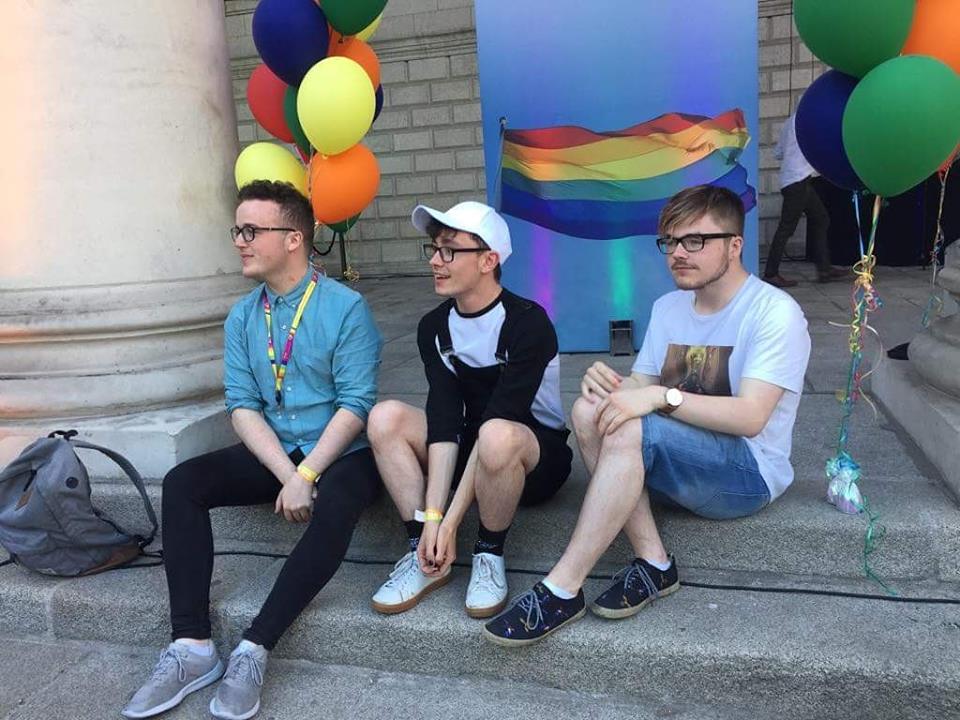
PIP: How did your love of Drag Race help you land your first job?
DO: As I mentioned before, I chaired the LGBT society in my university at Dublin City University. One of the friends I’d made in that society was dating her girlfriend at the time, who was the chief marketing officer at Enhancv, the company I’m working at now. I’d known them on sort of a personal level from seeing them out at events. Around January or February of last year, they got in contact with me and and said, “Hey, we have a section on our website called ‘successful resumes’ where we put together resumes for famous people to show our users and other people what the work history of these famous people looks like in an attempt to inspire them to put their resume together and see this person’s career in a one-pager.” They said they wanted to do one for RuPaul for a few different reasons.
It was around the time season 10 was premiering, so it made sense for them from a marketing perspective to put it out then. They had a connection to the LGBT community themselves as well. They knew on a personal level that I was a huge fan of a show and they knew I’d volunteered to do some writing work for different websites in the past. So they said, “Do you want to take a chance and put this one together for RuPaul and see where it goes?”
I said it sounded like an interesting opportunity, and it was a way for me to make a little bit of money while in college. I knew it wouldn’t take much work for me to put together, since this is something I love and know inside and out. I put the resume together and sent it on. In the back of my mind, I thought if they like it, they might ask me to do something else down the line. I wanted to make sure that I was giving them high-quality content.
They came back to me and they were blown away at how I put the resume together, and they were very impressed with how it read as if RuPaul themself had done it. That I captured the essence of who they are as a person and also included stuff in there that even avid fans of the show may not know. From there, they asked if I’d be interested in taking up a summer internship with them doing similar work, but not only writing content about RuPaul. A few interviews later, and I’ve been working there as an intern for around two months now. I started in June and will be here until the end of September.
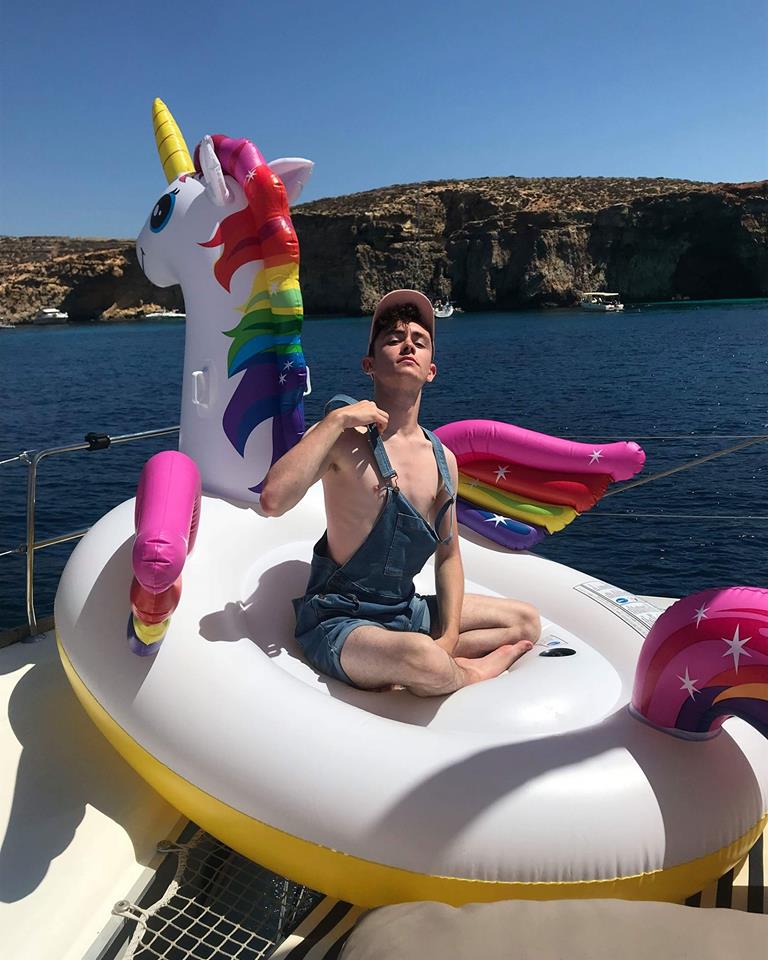
PIP: Congratulations! What advice do you have for other young LGBTQ people who are worried their identity will make it hard for them to find a job, or that they’ll have to be in the closet at work?
DO: I know that my story is quite unique, and not everyone who loves RuPaul’s Drag Race can end up getting a job somewhere where they can be open and out, and being queer is how they got the job and not just something they have to deal with when they got hired. I do recognize it’s an incredible privilege that I even had the luxury of almost waiting around for the opportunity to be able to do that. I wouldn’t say that I can give the best advice for someone who’s in desperate need of a job; I don’t know what the experience is like for someone to have to be closeted at work. That’s something I recognize as a queer person.
But the main advice I’d give is to concentrate less on the places that you know that it might be potentially a problem and put more of your energy in places where it might be celebrated. For the last two years I’ve been working in the student LGBT scene volunteering my time, organizing events, speaking, running workshops, and that sort of thing, and really dedicating my time to a space where I knew it was welcome, and that is what eventually led to me getting this opportunity. Develop your skills in a place that is safe and you know you can be yourself in, where the companies aren’t going to be thinking about if you’re out or not — they’ll just see the expertise you’re bringing.
There’s also the element of, you have a rich pool of knowledge as a queer person that exists in a queer space. Companies are always looking to diversify the employees that work there, but also their understanding of different life perspectives. Especially for companies that have only been founded in the last few years or are in the tech industry or marketing, it’s essential for them to understand other people’s perspectives and life experiences in order to be able to provide products for them.
So — and there is an air of privilege in this — allow yourself to double down on things you’re passionate about, and know that an opportunity will come along as you’re open to it, and you should jump on it once it presents itself.

